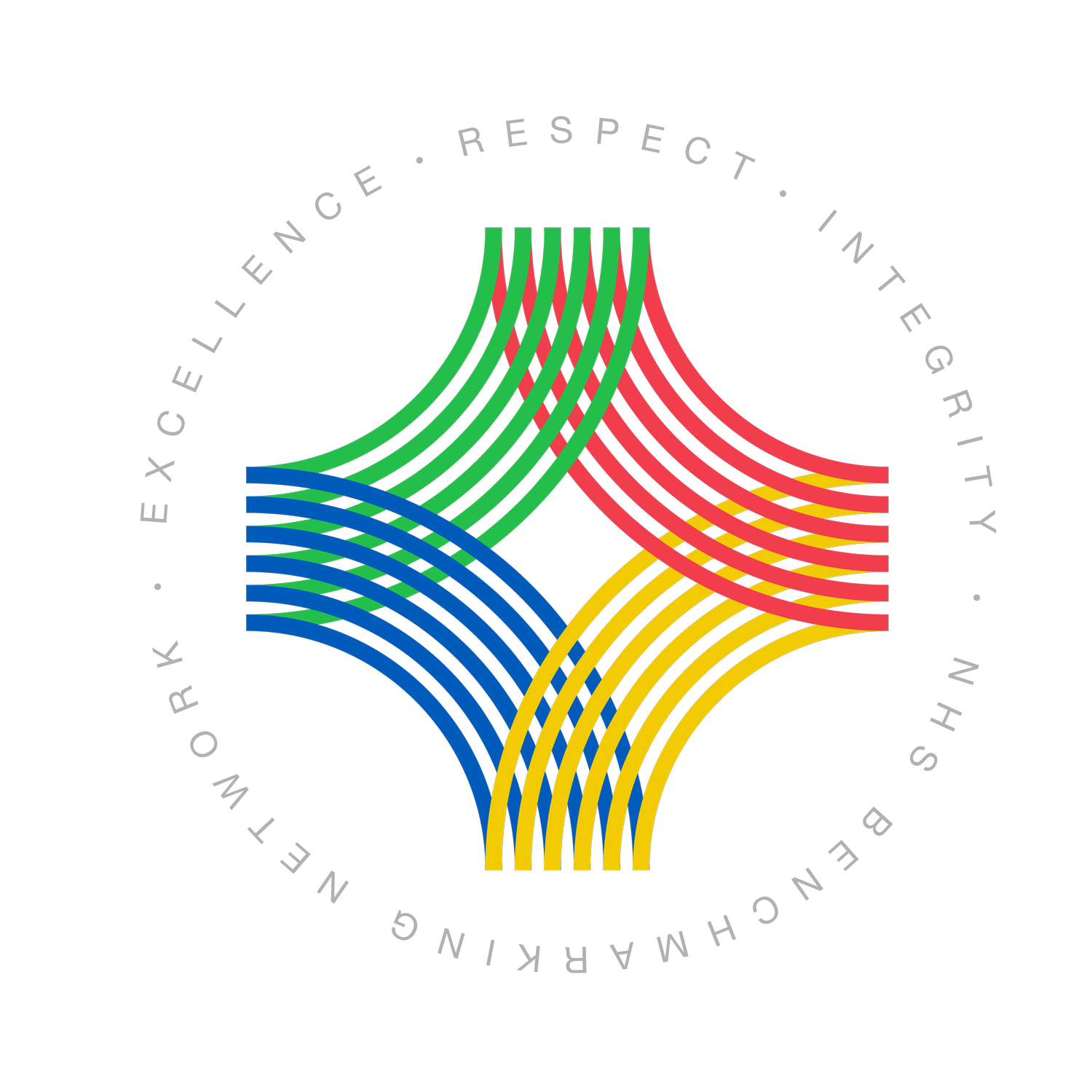Adult and Older People’s Mental Health Benchmarking Project - Frequently Asked Questions
This page has been provided to support members with any frequently asked questions in relation to the Adult and Older People’s Mental Health Benchmarking Project.
This page is updated regularly and contains questions asked by participating members and their responses.
If you have a question, and it is not listed here, please email the Adult and Older People’s Mental Health Benchmarking Project team at: nhsbn.mhadult@nhs.net.
What should we include under the community team and inpatient bed headings?
The community team type definitions are:
Generic CMHT: A multi-disciplinary team offering specialist assessment, treatment and care to adults with mental health problems in their own homes and in the community. They may provide a whole range of community based services themselves, or be complemented by 1 or more teams providing specialist functions.
CRHT: Crisis resolution service. Sometimes these also include Home Treatment Teams and provide intensive support for people in mental health crisis in their own home (or other suitable accommodation).
Assertive Outreach: Provide intensive support to severely mentally ill people who are more difficult to engage in more traditional services. Care and support could be offered in both patients' own homes and other community settings as well as designated crisis centres.
Early Intervention (inc Early Onset Psychosis): A team specifically for those experiencing symptoms of psychosis for the first time and/or for young people experiencing symptoms of psychosis.
Individual Placement and Support: An employment support service integrated within community mental health teams for people who experience severe mental health conditions.
Assessment & Brief Intervention: A team dedicated to providing rapid access triage and assessment services including time limited brief interventions and close liaison between primary care and specialist mental health services.
Rehabilitation and Recovery: Teams which support and care co-ordinate people with complex needs in community-based CCG and/or LA funded placements. These teams mainly care co-ordinate people with complex psychosis and related conditions. They help people to acquire or regain the skills and confidence to live as independently as possible by addressing and minimising symptoms and functional impairment; screening for physical health problems; promoting healthy living; supporting carers and promoting meaningful occupation. Overseeing transition from hospital, managing community placements, and ensuring people achieve and sustain their optimum level of independence is a central part of these teams’ expertise. They can also provide advisory and in-reach functions to support people under the care of generic community mental health teams and acute inpatient settings.
Forensic: A team providing specialist forensic mental health services for people with mental health problems who have been arrested, who are on remand or who have been to court and found guilty of a crime.
Eating Disorders: A multi-disciplinary team that specifically targets patients with eating disorders.
Perinatal: A team that provides support to mothers and expectant mothers experiencing mental health problems.
Older People: A team providing mental health services to Older Adults in a community setting.
Memory Services: A specialist team dedicated to assessing and supporting patients who may have a memory problem or similar cognitive impairment.
ASD (autism spectrum disorder) team: ASD (autism spectrum disorders) teams offer diagnostic assessment and/or specialist interventions for autistic people.
ADHD team: ADHD (attention deficit hyperactivity disorder) teams offer diagnostic assessment and/or specialist interventions.
Other neurodiversity team: Any other community mental health team offering specialist support for individuals with a neurodiverse profile not included in ASD or ADHD teams.
Other Adult CMHTs: Any other community mental health team configuration/make-up not mentioned above.
The inpatient bed type definitions are:
Adult Acute: An acute bed for adults of working age (18–65) for males or females. Patients may be informal or subject to the Mental Health Act. These wards are now expected to meet the single sex accommodation standards. Acute inpatient wards provide care with intensive medical and nursing support for patients in periods of acute psychiatric illness.
Older Adult: Older adult beds are provided for the psychiatric care of patients aged 65 years and older. Beds can typically be provided for 2 main types of care;
1. Organic mental illness which is a dysfunction of the brain associated with decreased mental function, and
2. Functional mental illness which covers a range of psychiatric illness including psychosis, affective and behavioural disorders. Patients on Older Adult mental health wards often exhibit complex co-morbidities including enhanced levels of physical frailty. Patients typically stay longer on Older Adult wards than on General Psychiatric wards given their poor state of physical and mental health and need for ongoing care and support.
PICU: A PICU is a type of psychiatric inpatient ward. These wards are secure, meaning that they are locked and entry and exit of patients is controlled. Staffing levels are usually higher than on an acute inpatient ward, usually multi-disciplinary and sometimes with 1:1 nursing staffing ratios. They usually receive patients who cannot be managed on the acute inpatient wards due to the level of risk the patient poses to themselves or to others. In some cases, patients may also be referred from prisons or rehabilitation wards. Patients will usually be detained under the Mental Health Act. Length of stay is normally short (ranging from a few days to a few weeks, depending on the patient’s needs), and patients are usually returned to the acute inpatient ward as soon their risk has reduced, and the more intensive treatment has started.
Eating Disorders: A bed designated for the specific treatment of psychiatric illness associated with Eating Disorders. This is for the acute phase of treating Eating Disorders and will typically have high inputs of Medical, Nursing, and Therapy staff.
Mother & Baby: Specialist beds associated with the care of mothers and their babies for a range of mental illness associated with the puerperium. This can include psychosis and affective (mood) disorders. Perinatal mental health units care for both mother and baby, and typically have high intensity input from Medical, Nursing, and Therapy staff.
Low Secure: Low secure units deliver intensive, comprehensive, multidisciplinary treatment and care by qualified staff, for patients of high acuity who require the provision of security. This is according to an agreed philosophy of unit operation underpinned by the principles of rehabilitation and risk management. Such units aim to provide a homely secure environment, which has occupational and recreational opportunities, and links with community facilities. Patients will be detained under the Mental Health Act and may be restricted on legal grounds needing rehabilitation usually for up to two years. Access to this service is typically from local mental health services (including PICU), from medium secure services or from the criminal justice system.
Medium Secure: Medium secure services work within a framework of clinical governance, specialised assessment, treatment, rehabilitation and aftercare services for offenders with mental health problems, or those at risk of offending. Thereby seeking to reduce the distress associated with mental health problems, and their behavioural consequences, with reduction of risk of harm to others. Most patients enter medium secure care from court, although some may be referred from general mental health services. All will be detained under the Mental Health Act. They may also move to medium secure services by means of transfer from low to high secure services, as a consequence of changing needs. The average length of stay in medium secure care is 18–24 months, although some may require medium security for longer.
High Secure: High secure services work within a framework of clinical governance, specialised assessment, treatment, rehabilitation and aftercare services for offenders with mental health problems or those at risk of offending. Thereby seeking to reduce the distress associated with mental health problems and their behavioural consequences, with reduction of risk of harm to others. Patients enter high secure care from court, and all will be detained under the Mental Health Act. The average length of stay in high secure care is around ten years with lifetime stays also evident due to the specific requirements of the justice system.
High Dependency Rehabilitation: These units provide rehabilitation to clients with active symptoms, more complex needs and challenging behaviours. Such units are hospital based and accept referrals from acute admission wards, PICUs and secure services. The usual aim of treatment is to move on to other facilities in the rehabilitation service prior to independent/supported community living. Domestic services are provided by the unit. Such units are higher staffed than generic rehabilitation units, and often have locked/lockable doors to manage behavioural disturbance. These units should be available in all trusts serving a population of between around 600,000 and one million. They have a major role in repatriating patients from secure services and out-of-area placements. The average size is 14 beds, and the usual length of stay is one to two years.
Longer Term Complex / Continuing Care: These are specifically designed wards for usually long-stay patients where their care needs are complex.
Neuropsychiatry / Acquired Brain Injury: Neuropsychiatry and Acquired Brain Injury beds are complex inpatient services for people who have suffered a brain injury or other impairment due to both traumatic and non-traumatic events. Patients suffer from brain cell damage that requires specialist brain injury help. Patients may suffer from progressive symptoms that require ongoing specialist management. Patients can suffer from complex physical, cognitive and behavioural co-morbidities that require specialist care. This specialist care can be associated with complex diagnostic and rehabilitation services, which include a large therapy component. Services provided typically span neuro-psychological and neuropsychiatric services as well as a range of supporting physical and cognitive therapies.
Substance Misuse / Addiction Services: A specialised team which provides support, guidance, and treatment to individuals struggling with substance misuse, including drug and alcohol problems.
Other Specialist Mental Health Beds (excludes CAMHS and MoD): Beds that do not fit into the above categories. This category should not include CAMHS or MoD patients.
Where can we find the recording of the drop-in sessions?
The launch event recording and slides can be viewed on our Events Page as follows:
Log into members area and go to the Events page
Search for Adult and Older People’s Mental Health
Click on past events and select the hyperlink to view the presentation
Please can you clarify what “within provider footprint” means?
Within provider footprint means any activity / beds or wards that are located within the geographical footprint that your organisation owns (your estate). I.e., your main site (and any other permanent site locations under your organisation).
Please can you clarify what “off estate beds” means?
Off estate beds are beds that you might spot purchase or lease for a short-term period. These are not permanent beds within your estate.
Where should we record block-contract and spot-purchased beds purchased from private sector providers?
Block-contract and spot-purchased beds should be recorded as Out of Footprint as they are not a permanent feature of your estate.
Do the questions on the Inpatient Workforce & Finance, Inpatient Profiling and Patient Safety worksheets apply to within footprint services only?
Yes, within provider footprint only as we recognise organisations will have limited access to this information outside their provider footprint.
Please can you advise which ICD-10 codes “organic disorders” relate to?
Organic disorders relate to the F00 - F09 ICD-10 codes.

